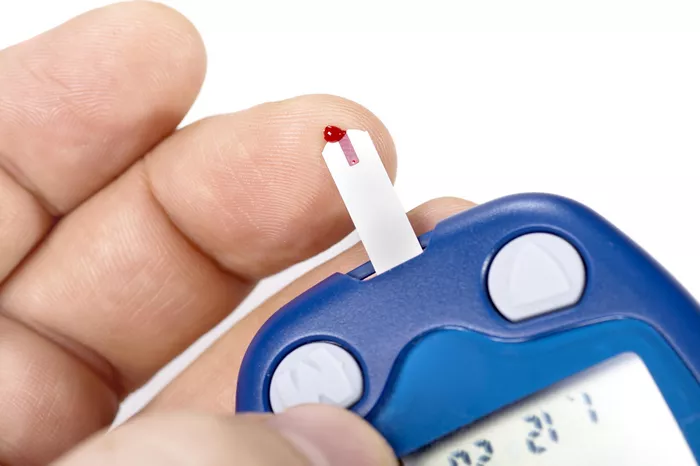Diabetes is a chronic condition characterized by the body’s inability to effectively regulate blood glucose levels. This regulation dysfunction can manifest in two primary ways: hyperglycemia and hypoglycemia. Hyperglycemia refers to elevated blood glucose levels, while hypoglycemia denotes abnormally low blood glucose levels. Understanding the nuances of these conditions is crucial for managing diabetes effectively and preventing complications.
Understanding Diabetes
Diabetes mellitus is broadly categorized into Type 1 and Type 2 diabetes. Type 1 diabetes, an autoimmune condition, occurs when the body’s immune system attacks insulin-producing beta cells in the pancreas. As a result, individuals with Type 1 diabetes produce little to no insulin and require lifelong insulin therapy. Type 2 diabetes, the more common form, is characterized by insulin resistance, where the body does not use insulin properly, and eventually, insulin production may decrease.
In both types, the regulation of blood glucose levels is disrupted, leading to periods of hyperglycemia or hypoglycemia. Effective diabetes management hinges on maintaining blood glucose levels within a target range to minimize these fluctuations.
Hyperglycemia in Diabetes
Definition and Causes of Hyperglycemia
Hyperglycemia occurs when blood glucose levels exceed the normal range. According to the American Diabetes Association (ADA), fasting blood glucose levels above 126 mg/dL (7.0 mmol/L) or random blood glucose levels above 200 mg/dL (11.1 mmol/L) indicate hyperglycemia. Several factors contribute to hyperglycemia in individuals with diabetes:
- Insufficient Insulin Production: In Type 1 diabetes, the pancreas produces little to no insulin. Without adequate insulin, glucose cannot enter the cells and accumulates in the bloodstream.
- Insulin Resistance: In Type 2 diabetes, cells become resistant to insulin’s effects. The pancreas compensates by producing more insulin, but over time, this compensation fails, leading to elevated blood glucose levels.
- Diet and Lifestyle Factors: Consuming high-carbohydrate foods, lack of physical activity, and stress can exacerbate hyperglycemia.
- Illness and Infection: Illnesses can cause the release of stress hormones that increase blood glucose levels.
- Medications: Certain medications, such as corticosteroids, can elevate blood glucose levels.
Symptoms and Complications of Hyperglycemia
Symptoms of hyperglycemia may develop gradually and include:
- Increased thirst (polydipsia)
- Frequent urination (polyuria)
- Fatigue
- Blurred vision
- Headaches
If left untreated, chronic hyperglycemia can lead to severe complications such as:
- Diabetic Ketoacidosis (DKA): Predominantly seen in Type 1 diabetes, DKA occurs when the body breaks down fat for energy in the absence of insulin, leading to the production of ketones, which can accumulate to dangerous levels.
- Hyperosmolar Hyperglycemic State (HHS): More common in Type 2 diabetes, HHS is characterized by extremely high blood glucose levels without significant ketone production, leading to severe dehydration and altered mental status.
- Microvascular Complications: Chronic hyperglycemia can damage small blood vessels, leading to retinopathy (eye damage), nephropathy (kidney damage), and neuropathy (nerve damage).
- Macrovascular Complications: It can also contribute to cardiovascular diseases such as coronary artery disease, stroke, and peripheral artery disease.
Managing Hyperglycemia
Management strategies for hyperglycemia focus on maintaining blood glucose levels within the target range through:
- Medication: Insulin therapy is essential for Type 1 diabetes, while Type 2 diabetes management may involve oral medications like metformin, sulfonylureas, or injectable therapies such as GLP-1 receptor agonists and insulin.
- Diet: A balanced diet low in simple carbohydrates and rich in fiber, whole grains, lean proteins, and healthy fats helps manage blood glucose levels.
- Physical Activity: Regular exercise enhances insulin sensitivity and helps lower blood glucose levels.
- Monitoring: Frequent blood glucose monitoring helps in adjusting treatment plans promptly to prevent hyperglycemia.
- Education: Diabetes self-management education (DSME) programs empower individuals to understand and manage their condition effectively.
Hypoglycemia in Diabetes
Definition and Causes of Hypoglycemia
Hypoglycemia is defined as blood glucose levels falling below 70 mg/dL (3.9 mmol/L). It can occur due to several reasons:
- Excessive Insulin or Medication: Overdosing insulin or other glucose-lowering medications can cause blood glucose to drop too low.
- Delayed or Missed Meals: Skipping meals or eating less than usual without adjusting medication can result in hypoglycemia.
- Increased Physical Activity: Exercise can lower blood glucose levels, especially if not accounted for with food or insulin adjustments.
- Alcohol Consumption: Alcohol can interfere with the liver’s ability to release glucose into the bloodstream, leading to hypoglycemia.
Symptoms and Complications of Hypoglycemia
Hypoglycemia symptoms can vary from mild to severe and include:
- Shakiness
- Sweating
- Palpitations
- Hunger
- Confusion
- Irritability
- Seizures (in severe cases)
- Loss of consciousness (in severe cases)
If not promptly treated, hypoglycemia can lead to life-threatening complications, such as:
- Severe Hypoglycemia: Requires assistance from another person to administer treatment and can lead to seizures or unconsciousness.
- Hypoglycemia Unawareness: Frequent episodes of hypoglycemia can blunt the body’s warning symptoms, increasing the risk of severe hypoglycemia.
Managing Hypoglycemia
Managing hypoglycemia involves prompt treatment and preventive strategies:
- Immediate Treatment: The “Rule of 15” is commonly used, which involves consuming 15 grams of fast-acting carbohydrates (e.g., glucose tablets, juice), waiting 15 minutes, and rechecking blood glucose levels. Repeat if necessary.
- Glucagon: For severe hypoglycemia, glucagon injections or nasal glucagon can be administered to rapidly increase blood glucose levels.
- Monitoring: Regular blood glucose monitoring helps in identifying patterns and preventing hypoglycemia.
- Medication Adjustment: Working with healthcare providers to adjust insulin or oral medication dosages based on blood glucose patterns, diet, and activity levels.
- Education: Teaching patients to recognize early symptoms of hypoglycemia and how to treat it promptly is crucial.
Balancing Hyperglycemia and Hypoglycemia
Effective diabetes management requires a delicate balance to prevent both hyperglycemia and hypoglycemia. This balance is achieved through a combination of medical treatment, lifestyle adjustments, and continuous education. Here are key strategies for achieving this balance:
- Individualized Treatment Plans: Each person with diabetes requires a tailored treatment plan based on their type of diabetes, lifestyle, age, and other health conditions.
- Continuous Glucose Monitoring (CGM): CGMs provide real-time data on blood glucose levels, allowing for timely adjustments in therapy to prevent both high and low blood glucose episodes.
- Insulin Pumps: For those requiring insulin, insulin pumps offer more precise delivery of insulin, which can help stabilize blood glucose levels.
- Education and Support: Ongoing education about carbohydrate counting, meal planning, and the effects of exercise on blood glucose levels is vital. Support from healthcare providers, diabetes educators, and support groups can also enhance self-management skills.
- Regular Check-ups: Routine appointments with healthcare providers help in monitoring diabetes control, adjusting treatment plans, and screening for complications.
Conclusion
People with diabetes are at risk for both hyperglycemia and hypoglycemia, each presenting distinct challenges and complications. Managing these conditions requires a comprehensive and individualized approach that includes medication, lifestyle modifications, continuous monitoring, and education. By understanding the causes, symptoms, and management strategies for hyperglycemia and hypoglycemia, individuals with diabetes can work towards achieving optimal blood glucose control and improving their overall health and quality of life.
In summary, while hyperglycemia is a hallmark of uncontrolled diabetes, hypoglycemia is a potential consequence of its treatment. Effective diabetes management aims to minimize both extremes, ensuring a balanced and healthy life for those living with diabetes.
Related topics:


























